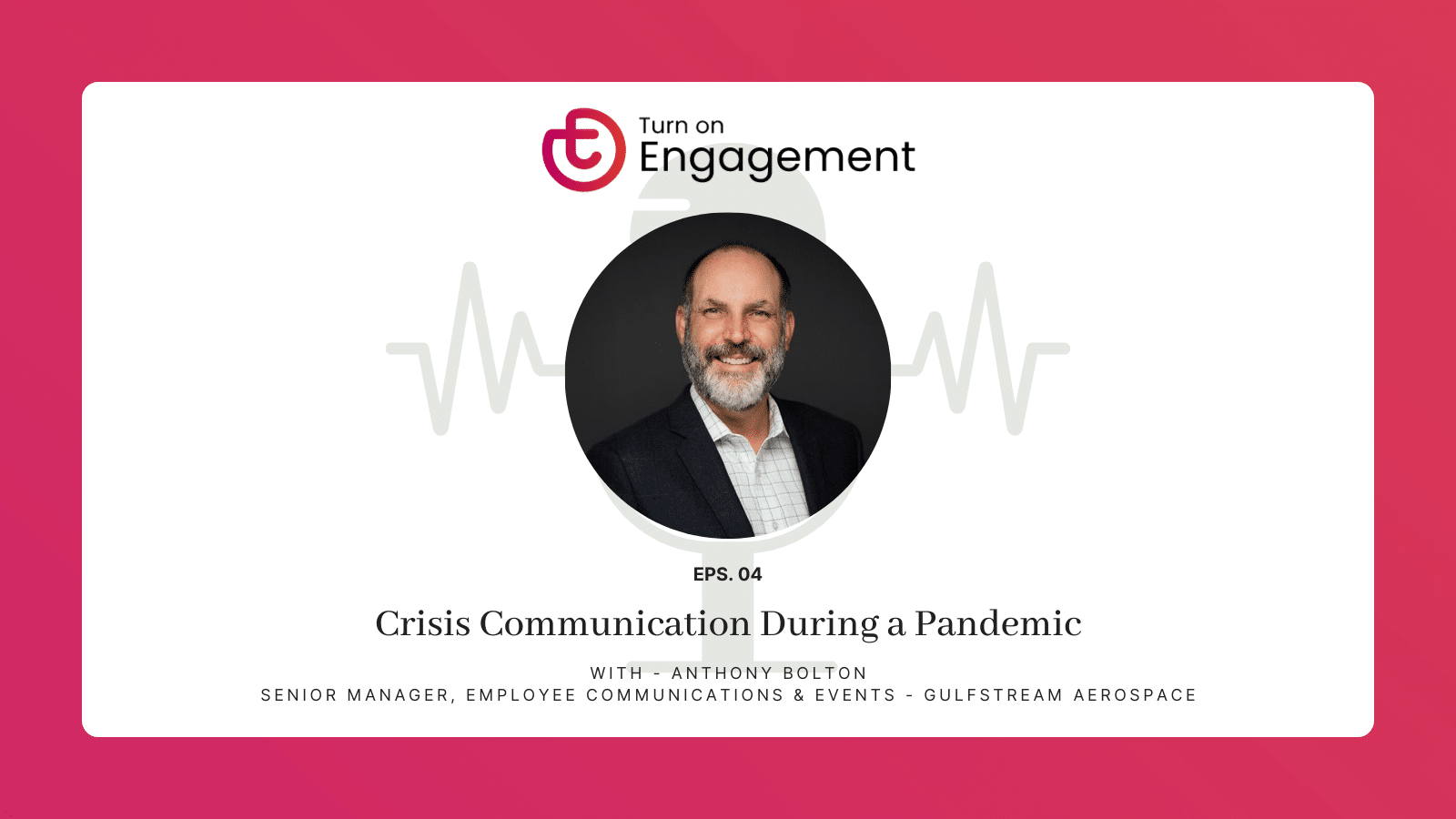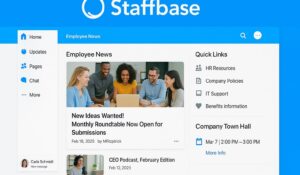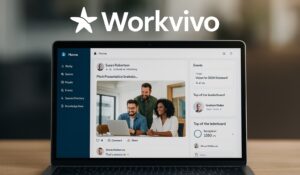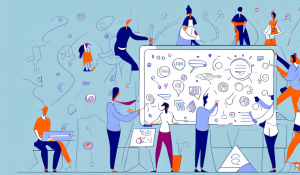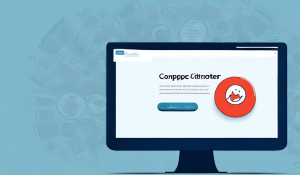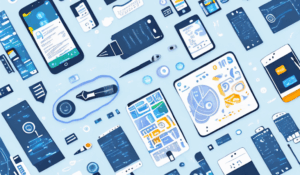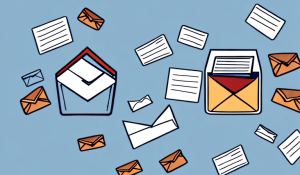Yash talks to Gulfstream Aerospace‘s Senior Manager of Employee Communications – Anthony Bolton about the communication tactics used during the COVID-19 pandemic, the results of those tactics, and what they’ve learned. He also talks about what communication strategies they plan to execute going forward now that things are slowly going back to normal.
Follow and listen to the Turn on Engagement Podcast on your favorite audio streaming platforms: Spotify, Google Podcasts, Apple Podcasts, Tune In, iHeartRadio, and RSS.
Podcast Transcript:
Yash Chitre: Hey everyone it’s Yash Chitre with the Turn on Engagement Podcast brought to you by HubEngage. Today I’ve got Anthony Bolton, senior manager of employee communications and events at Gulfstream Aerospace. Anthony’s got some great storytelling today on Covid- 19 employee communications, how they really weathered the storm through some great execution of tactics, the impact that had on getting a seat at many tables putting employee communications firmly on the map inside of the organization.
Their executive leadership from the CHRO to the president and CEO really stepped up their game to make sure employees were well taken care of and he’s going to talk about what that really means for the future if there’s a silver lining to all of this. In this story where they’re now set to take employee communications and engagement to soar new heights at Gulfstream so all of you employee folks listening, you’re not going to want to miss this pure talk about some really great ideas they brought to life in rapid fashion and it’s all coming up next here on the Turn On Engagement podcast brought to you by HubEngage.
Yash Chitre: Hey, everyone and welcome to the Turn On Engagement podcast. I’m Yash Chitre, Senior Vice president engagement over at HubEngage, and today I have a very special guest: Anthony Bolton, Senior Management of employee communications and events at Gulfstream aerospace. He’s joining us today and very excited to talk to Anthony today and hear the story of how they’ve sort of communicated to employees and conducted events over the past year.
You probably all know Gulfstream as a very popular brand name they produce business jets for a variety of different customers globally so I’m going to uh talk to Anthony today specifically about what happened last year uh with their covid communications and how they had to address their corporate communications uh and specifically how that is uh work to change the way they uh communicate and engage with their employees and what impacts have that had on the future of communication so Anthony welcome to the podcast thanks for joining us today
Anthony Bolton: Hey thanks Yash, I’m happy to be here
Yash Chitre: So I guess I’ll start it off with, you know very simply you know: How have you addressed employee engagement during covid-19 and kept that communications flow going to your workforce with everything that’s happened?
Anthony Bolton: Yeah I mean there’s, of course, there’s; there’s a whole lot to unpack when you bring up covid, there’s so much to unpack but I think, you know, when we went to lockdown it seemed like the world was just changing almost by the hour or something in those early days uh something was changing and we were having to respond to it and of course, knowing our employees we’re also reading about these changes in the media uh it was all happening so fast and you know.
So our primary focus was to say okay we we need to communicate often we need to communicate as often as possible and so we did kind of feel like we were a bit of a communications machine or factory if you will in those you know first like 60 days or so of the pandemic in the in the U.S once it got to the U.S but you know we we we wanted to stick with that plan of communicating often which I realize is a fairly fundamental when you get into crisis communications um planning and and that modality uh but what we I think something that we did um that that maybe was a little unique and kind of required for this situation as we we made sure that our employees were hearing very often from our company president we really wanted them to feel like he was very in tune with what was happening um and and in this situation with employees living it with them you know and not just yes as the president of gulfstream as the leader of gulfstream but also as a fellow human being um and so we you know we really made sure that they that they heard very often from Mark.
Burns, our president, you know and because we do have because we are in manufacturing and we do have a workforce that is you know that we’re you know watching the video and things of that nature not always really accessible to them we did leverage a lot of messaging a lot of our email channels so we had messages from Mark on almost you know came close to a daily basis for for for a while but then it kind of slowed down and then we also realized that our employees probably needed a place to go where they could kind of find general information about our response to um covid19 crisis.
So we created um a special page on our intranet and you know we put all of our you know sort of archived all of our messaging out there but we also created a safe word playbook um that kind of came more into play when we started going back to the office but of course our manufacturing and service employees uh never really went home they had to continue to go in and manufacture and service aircraft so uh you know we needed to have we put a lot of protocols in place and of course, that was a lot of our communications was around those protocols so the safe work playbook was uh was a great resource and people could just go out there and find it on our special Covid-19 page.
And then another thing that we did to sort of help separate the more strategic and engagement messaging from our leadership with those messages from Mark another thing we did was we set up an email channel and we basically named it Covid-19 updates so we put more of the operational and functional kind of messaging in that you know here’s what you need to do on this date or hey this is a change to this protocol and you know that change is effective you know immediately and that kind of thing so we really tried to help people and people really with the feedback we got from employees was really good.
They appreciated the Covid-19 update emails because they gave them really concise you know information just very fact-based quick read type stuff but then as I said the messages from Mark were were were a little more on that level of you know his view of things and sort of helping people understand you know why we were making some of the changes we were making and again.
And also you know there was you know some tough messages that you know that we had to put out there as well uh like for example when we you know early days we were sort of reporting when we had cases and you know and that just wasn’t easy for people to hear and and so I think you know i think one other thing that we we managed to do is kind of take a you know we took a perspective we took we really took all of the communications that we probably you know we had planned for at least the first half of the year all of our projects and initiatives and we just and we just said you know what these things are important but we’ve really got to focus on this crisis and we’ve got to really have to focus on keeping our employees informed and taking care of our employees and so the the health and safety of employees was always our priority and it remains our priority and that there was it was not a well it was kind of tough to set some of those other projects aside those things that we were looking forward to executing in 2020 it really seemed like the right thing to to to do which I know helped my team really focus more on keeping the communications around the crisis sharp and engaging and timely.
Yash Chitre: That’s fantastic this is you know great to hear I especially love to hear you know how leadership you know really jumped in headfirst and got involved and drove a lot of the messaging coming out I think one of the most important lessons that I think we’ve all learned from the pandemic is you know when the messaging comes out top top-down you know it has to be authentic it has to be obviously you know very much in tune with keeping your finger on the pulse of what’s going on right now but it gives your leadership an opportunity to also you know humanize themselves right and say look I get it you know I’m going through this and taking this day at a time just like all of you are uh no matter who you are in the company.
So it sounds like that’s exactly what happened um so that must have really been great uh to enhance their you know profiles of leadership and also show that you know Gulfstream cares really genuinely care and all the things you talked about of you know just doing the right thing health and safety taking care of employees putting them first making sure that they not only have the information but you know they know what to do with it and that they’re well cared for um it’s definitely heartwarming to hear that so so thank you for sharing that story having said that I would think that this really put employee communications on the map right uh with your you know your c-suite and also you know kind of how employee communications live inside of your organization can you talk a little bit about that I think you mentioned that internal communications lives in HR but it has a lot of value that it’s now integrated into many specific HR functions and things like that how did that influence or change.
Anthony Bolton: Yeah so I think you know this is something I reflect on a lot because you know the pandemic really the crisis really did put a great a lot of emphasis on internal communications I mean you know I have peers uh at other organizations, of course, people I know through the public relations society of America who practices who are practicing internal comms uh professionals and that and it was just amazing to you know we were all sort of the same time we’re like wow we’ve kind of we’ve arrived as they noticed us they know we’ve got the seat at the table so to speak that you know that we’ve always wanted.
I think there’s certainly a lot of truth to that I know for us at Gulfstream you know I would even go so far as to say that we were absolutely an essential function throughout 2020 you know and in an essential at a level that probably no one would have you know really considered internal comms at before always important to the company but you know but we were really mission-critical and so yeah so we’ve got some you know I think we’ve got some creative credibility that perhaps you know was there but it’s just a little more so now but you know our yeah our CHRO who I report to Amy Ariano is you know she really has the seat at the table with the c-suite but you know she and I think she is perfect she does a great job of talking with me about before she kind of goes in the room with them and then she does a great job of representing the sort of perspective from an internal communications perspective or from internet communications and for whatever it is.
I mean there were you know in last year there were very frequent meetings the c-suite was having a very frequent meetings about the crisis and their response and so there were a lot of conversations that there was a lot of conversation a lot more conversation about communications happening at that table that had ever happened which I was really delighted with and I didn’t really care that much about whether I was actually in the room it wasn’t that important to me honestly because I knew that my perspectives were being shared via Amy and I think part of the reason I didn’t really feel like that was important is that another reason is that you know we it’s something that sort of internally calms people we just sort of sit around and I think wish that we had that sort of seat at the table and I think that’s a really big it’s a lot of pressure to put on ourselves you know in a way it’s also a tough proposition I mean I know organizations where the head of corporate communications is not even you know part of the c-suite.
So I think the expectation that internal comes you know and i think one day we’ll get there but I think for us to be there anytime soon is probably a little it’s probably a little ambitious and I think it can be a little demoralizing too so the approach that I’ve always taken with this is I’d rather have a seat at many tables not necessarily the table with the c-suite and kind of what I mean by that is what you mentioned just a moment ago Yash, is the one of the things that really helped us be so nimble and so effective as internal comms function through the crisis has been the relationships that we have with other functions across the business and those functions that also played a really critical role in helping us work through this like our like our health and safety team our facilities teams you know and and of course HR and other teams within HR like benefits where we’ve done so much work with them around mental wellness campaigns and just those those relationships that we’ve had the seed of the seeded that at those tables with those partners that has always been a focus for me it’s always been important those relationships
When you have those relationships established when you get to a crisis that’s when you really see the the the true benefit of having those strong partnerships uh when you know those people when you’ve worked with those people on some initiatives here and there, you know when it all kind of hits the fan so to speak you’re already attuned to each other and you kind of know what the priorities are what the strengths and opportunities are within each team kind of whose role who has what role and who you need to go to uh to um for what so you know I think if I think it’s an I think it really was so key for us and you know I think it’s something that I would really encourage other internal communication, communication pros at other organizations to really make sure that they’re um sort of reaching across the aisle if you will building those relationships having those strong partnerships with other key functions in your company there I mean there’s loads of benefits outside of just times of crisis and I think it’s really it also really helps people understand that the scope and scale of internal communications is so much more than newsletters and some e-blast.
Yash Chitre: That’s right
Anthony Bolton: It really helps put into perspective hey this function is a holistic function for the organization, uh and they’re there there’s um you know there’s a lot that we can offer to anyone who you know who wants to improve engagement and the employee experience.
Yash Chitre: That’s great yeah I mean talk about making lemonade out of lemons that he had this sort of out of left field crazy situation with the pandemic but it sounds like you guys were really able to uh take it and kind of grasp it by the horns and get a silver lining out of it at the end of the day by improving the relationships really getting employee communications to have that seat at the table just like you talked about improving those relationships and really almost bring to the surface you know employee comms is not the same as HR comms.
I think you know small things like that that you know a lot of times people don’t really think through or don’t understand the value of the relationship or what each person is is or a department or group is responsible for doing so it sounds like a lot of awareness has come around that and I think that I agree with you 100 percent when you say it’ll be great for you know hopefully other companies other you know your other peer’s employee communications peers out there can learn from that as well and work on those relationships because that’s what it’s all about.
I mean when it’s crisis time you gotta count on those relationships so um that’s absolutely great to hear and I assume that you know everything you’ve learned in the past year is directly influencing the future of how you guys will work and how you guys will do employee communications at Gulfstream um are there specific you know you talk a lot about the relationships and things like that but are there specific learnings that you now know that you didn’t know before that are going to change how you guys actually operate and communicate um to all your workforces you know your segmented workforces whether they’re out of the employees manufacturing people or people in the office etc.
Anthony Bolton: Yeah I think one thing we learned is it almost makes me cringe a little bit to say this but one thing we learned is email is still a really powerful communication tool I think that you know I mean there’s because we don’t necessarily because we can’t necessarily force people to go and look at our internet every day although you know I would certainly encourage them to all go look at our internet every day you know because we have some really compelling content out there and we keep it pretty fresh but it’s not a reasonable expectation to just sit back and think oh everybody’s gonna see this article so you know we’ve never really operated from that perspective.
But we’re also somewhat conservative with email communications in the past but boy the crisis really showed us that people read the email they still read email. On some level, I think email seems like a somewhat antiquated tool when you’re when you look at some of the social platforms that are available for internal comms now and there’s you know employee apps and you know and and some great great tools certainly fantastic stuff but i think we were really we were really surprised at the traction uh that emails had with our audience I think we also you know we also learned that you know I think we also realized that that there’s no there’s really no one way to to execute during a crisis because every crisis is different I mean you know we because we’re you know our headquarters is in Savannah, Georgia and that’s where i am and you know we’re we’re prone to the occasional tropical storm or hurricane and you know we’ve got a fairly reasonable kind of play book for those types of events the great thing about a hurricane in a way and well great thing i guess there’s not really great things about hurricanes.
The one advantage we have is you know it’s coming but when something unexpected happens yeah there’s not always there’s not necessarily that crisis plan that you can pull up and um and yeah you can leverage elements of it but I’m not sure uh you know it’s just there’s just no way you can plan for every you know every scenario so we definitely found ourselves getting really creative and at times doing things that that that were necessary but as communicators really made us a little um it was a little sort of cringe-worthy.
Yash Chitre: Sure, yeah
Anthony Bolton: At times, but you know it was the right thing to do I don’t have zero regrets um from anything that we executed really it just wasn’t always sort of what would come naturally for us um as uh the right sort of tactic if you will. so there’s a so you know I think I think the bottom line lesson there Yash is that you’ve got to be you gotta be open you got to be open to to to doing things that might be just a little different um and um there’s and sometimes there really isn’t like a right way or a wrong way there’s just this is the thing that needs to happen today um and that can and that can be tough sometimes it can be tough to sort of taking what you know and sort of feel in your gut from your experiences and as an expert in your field and say okay well I’m just gonna throw that out the window right now and go do this um and that can be kind of tough but if it’s the right thing and if that’s what needs to be done to support the company and support employees then sometimes you just have to do it.
Yash Chitre: Yep, you just got to go for it yeah yeah I totally hear you on embracing the change and almost you know to move fast and break things right um and then if it doesn’t work try something else um I think I think that’s definitely an important business learning there um you also have events um under your uh sort of your purview as well I’m just curious you know what do events look like well what did they look like this past year what are they looking like for the future.
Anthony Bolton: So well this past year they were pretty non-existent um social you know a lot of our bigger events you know since the majority of our employees are in Savannah um you know we were we’re able to do some annual events here like celebrating our veteran employees, and we do sort of we do like a kind of a family some sort of family-focused you know the sort of picnic and a bit of a sort of county fair kind of feel that we call family day and we do some events similar to those in some of our other locations as well but you know the obviously you can’t do something like that with covid protocols in place um social distancing and all that I mean it just would be irresponsible.
So we knew as soon as the pandemic started that we were not going to be doing events for a while and you know and it was yeah it was kind of scary it was a little like wow when what does this mean how long is it gonna how long is this state going to exist for us um and you know and I think I think that you know my events crew just did you know they did a fantastic job of saying well you know maybe we can’t do events the way we used to but there probably is a way to still do something to engage employees around these particular occasions and these sort of you know celebrations that we would have.
So yeah we had to delay some things last year sort of our normal timeline but they did a really great job of doing some virtual and hybrid style events our you know the sort of carnival picnic thing that I mentioned earlier turned into more of a drive-through type event where people just stayed in their cars with their mask on they rode through there was right through this big parking lot that we’d sort of set up and then set up some entertainment kind of along their route and then at the end of the route they got up they got a big bag of you to know a basket of food already prepped for them and their family and they and they went home and it was just you know it was just really taking the um the whole you know sort of event and turning it on its head and making it work um during covid.
I think they just did a fantastic job of still trying to offer some offer employees something that felt kind of normal even though it was you know really anything but normal in a sense and employees really appreciated it I think going forward the the exciting thing is that we you know we we do have some we’re feeling optimistic about being able to do some some hybrid and maybe in person type events later this year which is typically when most of our bigger events happen and so you know we’re we’re slowly um kind of like the rest of the country you know we’re kind of slowly we’re slowly starting to come out of this thing right so right um so there’s there’s a lot of uh there’s a lot of hope um that that we’re gonna be able to offer offer um experiences for employees that are that are much closer to uh what we had you know pre-covid right all good stuff um all really positive and I think I think we’re all real I know all of us as human beings are really looking forward to getting to that day.
Yash Chitre: Exactly yeah yeah no I think um as you guys uh as we all turn the corner on this hope and you know you can start to get more of those face-to-face interactions and then particularly with the events going I think that’s exactly what the doctor ordered for all of us right now just from a mental health perspective as well so to start to feel a little bit normal again all of these things have just been great to hear my last question to you would just be around uh you know all these great things that you guys have done.
You’ve managed to weather the storm fairly well uh you know is there an opportunity to sort of connecting the dots between you know all the great internal communications and things you’re doing um and connect those dots to your external communications to the things your customers see because from what I hear um obviously you guys have a great uh culture, uh your mission vision your values all that is shining through the things that you guys did I’m just wondering uh you know it would be great if your customers could see that too because you know when they’re making decisions on uh you know business jets and things like that um sometimes these things play a role right they like to know that their partners are um you know are good stewards of corporate citizenship right uh that they’re doing it and then they’re doing it right I’m wondering if there are any plans or any ideas to maybe take some of this and have it come across in your external brand.
Anthony Bolton: Yeah, so I and you’re spot on. you know we are our customers and and and partners of the organization are very um uh they are very um conscious uh uh uh and interested in knowing sort of what kind of yeah I guess you boil it down to you know the sort of corporate social responsibility right so interestingly enough yes we have um we have had some uh well throughout the whole crisis I stayed very well connected with our head of corporate communications and public affairs and also our community investments team.
There’s a lot of there were definitely some philanthropic opportunities uh that were presented to Gulfstream you know last year, you know some of those opportunities were um you know where we’re kind of related to uh PPE supplies you know back you know there were some PPE shortages and so we were able to help with some of that we did some um a 3D printing lab uh helped print some uh helped supply uh some parts for you know respirators and things of that nature.
We shared those stories with our internal audience and they were, of course, shared with the external audience and this year my team has partnered a little more on the event side well in ways on event side with the vaccine efforts so Gulfstream has close partnerships with some organizations particularly here in Savannah and we’ve also partnered with the state and um they set up a mass vaccination site on our campus and we also partnered with some local organizations for clinics around the area some vaccine clinics and so my events team has worked with our community investments folks to help support those events and support the volunteers making sure that they had everything that they needed were taken care of and then you know with the um with the state vaccine mass vaccination site uh we also coordinated uh on the communications and event side uh with those state agencies um and the and it really has been a great story for Gulfstream in our communities, in the industry.
And it’s also been a really great story for our employees because while we were communicating as much as we could sort of the where you can get the vaccine when you can get the vaccine uh all the details all the you know you know why getting vaccinated is a good idea so forth and so on you know we were also able to show them how we were not just supporting employees but supporting our employees families and the communities where they live and so uh that and and that’s and that’s still and that’s still uh going now um and i think you know i think uh later this year uh you know we’ll look back on everything that we did did this year and and have a really compelling uh some really compelling content uh to put out there you know we’ve been capturing video and um and doing some interviews uh we’ve been getting um some some testimonials from employees and people who have volunteered at some of the clinics uh so it’s it’s really uh it’s really been it’s really been something to to to see it unfold and see everyone coming together and uh and it is it is really there it is it’s you know gulfstream is very community focused um and and very um and very people uh focused and it’s you know one of the reasons the culture as you mentioned earlier and our values is really one of the things that I really love about working here.
Yash Chitre: That is fantastic this has been really fascinating to sort of hear and learn about you know your your whole story lots of lots of best practices in there some really great nuggets of information Anthony thank you so much for for sharing you know your story and your time with us today um you know maybe six months down the road a year down the road we’ll do another one of these we’ll do it we’ll do a part two uh and see see where we are a year from now um yeah that would be great uh but i’d like to thank you uh very much for for joining us today i i know our audience uh definitely uh will appreciate hearing this story uh and for those of you listening um when we do uh post this on Youtube uh in the uh description section uh we’ll also have a link to Anthony’s linkedin profile there so you can contact him and and see if you want to uh continue the conversation and and talk about some of the things that maybe you’re working on in your organization um so if we can help you and connect you to to great companies like gulfstream that obviously get it um and are doing it right um then that’s that’s uh that’s all for the best so thank you anthony for joining us today.
Anthony Bolton: Thank you Yash I appreciate it
Yash Chitre: Alrighty thanks have a great day everyone and stay tuned for the next podcast coming up we’ll have some other great recordings coming up I believe the next one we are doing uh is with a large insurance company based here in Boston so we will be announcing that uh in the next week or so uh talking to the director of public affairs and corporate communications there as well thanks everyone have a great day thanks for joining us.

